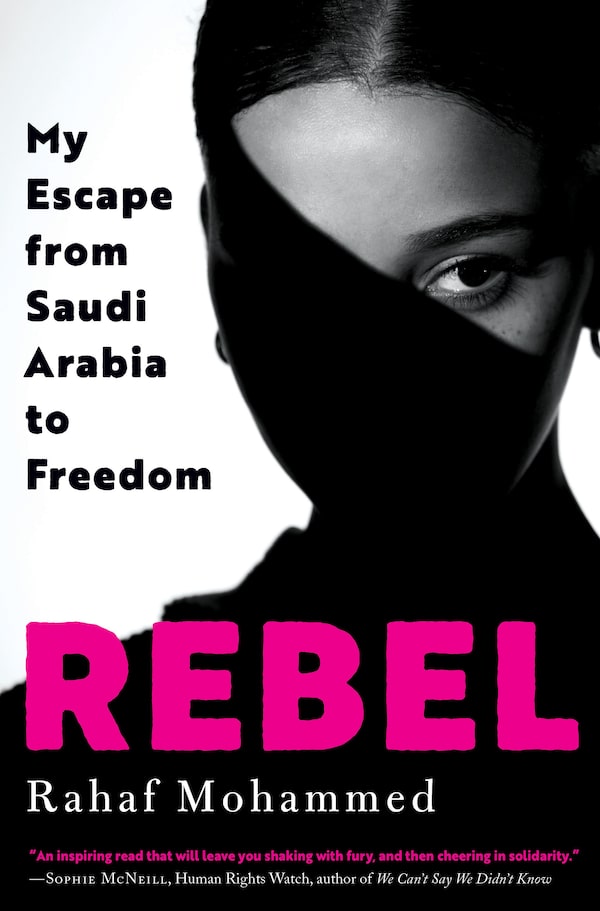This is the weekly Amplify newsletter, where you can be inspired and challenged by the voices, opinions and insights of women at The Globe and Mail. If you’re reading this on the web or someone forwarded this e-mail newsletter to you, you can sign up for Amplify and all Globe newsletters here.
Aruna Dutt is associate arts editor at The Globe and Mail.
As a member of Generation Z, I have never known a time before Roe v. Wade.
The overturning of the abortion ruling in the U.S. last week marked a grim moment for democracy and human rights in the U.S. and beyond, especially for poor and marginalized women. In response, thousands of activists keep showing up to defend these rights.
This Canada Day, I find myself asking questions activists are constantly grappling with: Amid the never-ending list of crises we are facing – Indigenous reconciliation, gender inequality, climate change and racism, among them – how do we create and sustain a more equal and just world?
Several newly published works by female activists are enlightening me these days, but two books stand out. These authors have distinct identities and widely different stories, but their writing ties them together: They’re striving to be free, to confront their barriers and to dream of a more equal world.
Rehearsals for Living
By Robyn Maynard and Leanne Betasamosake Simpson (Penguin Random House Canada; 336 pages)
Handout
For me, writing letters to friends feels like a long-lost form of communication, one I associate with pen-pals and colourful envelopes.
But the correspondence that makes up Rehearsals for Living brings with it a much more powerful urgency. It begins with a “letter from the end of this world” written by Robyn Maynard, author of Policing Black Lives, to Leanne Betasamosake Simpson, artist, musician and author of Noopiming: The Cure for White Ladies.
Leanne Betasamosake Simpson.Nadya Kwandibens/Handout
This “end of the world” is not an apocalyptic sentiment. Rather, this letter is a goodbye to one kind of world, “the world that white supremacy built, to move toward futures that are premised on life rather than (human, ecological, animal, microbial) waste,” Maynard writes.
Keep flipping pages and the letters written between the two women emerge as intimate yet highly academic essays confronting settler-colonialism and climate disaster in Canada and beyond, among other topics.
They trace the authors’ personal experiences through the biggest crises of 2020 in real-time: such as the pandemic, the Black Lives Matter movement, the finding of unmarked graves at residential school sites, the takedown of the Ryerson statue and the B.C. wildfires. The authors, in sharing their knowledge and observations, also detail how they teach their own kids about these social issues.
Demonstrating the history of solidarity between Indigenous and Black communities, they demolish the idea that marginalized groups and their causes are in competition with each other. This theoretical process and premise remind me of Isabel Wilkerson’s Caste, which compared India’s caste system with U.S. slavery and racial history.
Like many of us, these authors live separate and hectic lives. While it may be easy to relate to others in an increasingly divided way, fostering relationships within specific cultural bubbles, these activists remind us to understand our shared goals and to work toward better futures through intersectional female relationships.
Rebel
By Rahaf Mohammed (HarperCollins; 256 pages)

Harper Collins
In 2019, Canada granted asylum to an 18-year-old woman who had barricaded herself in a Bangkok hotel room. She had fled to Thailand in an attempt to reach Australia to escape her abusive family in Saudi Arabia. This was Rahaf al-Qanun, who now goes by Rahaf Mohammed, and she’s written a memoir with a clear purpose: to spark change in her home country.

Rahaf Mohammed.Rahaf Mohammed/Handout
In Rebel, Mohammed paints a picture of her life, from ordinary childhood memories to terrifying moments of being mistreated by her family. She witnesses her older sister’s failed attempt to escape, leading to severe punishment. As a teenager, she becomes a feminist atheist, cuts her hair and wants to attend university in another city, but faces punishment for these ambitions. She secretly reads online about misogyny and Middle-Eastern feminists such as Nawal El Saadawi, often questioning and challenging the rules.
Her story takes a turn when she discovers a private chat room of young women helping each other escape their repressive societies. She details her long-planned escape: taking her passport undetected, secretly saving money in a bank account, sneaking out to catch her flight while her family slept, the door squeaking on her way out.
The story becomes a feat of life and death, with a suspenseful description of the events at the Bangkok airport, and how she used social media to fight for international support.
In her new home in Canada, while she has struggled to let go of her old self, she feels “joyously free” with plans to graduate from university, pursue acting and help refugee women settle. This gripping story is one of determination, grit and the power of having a dream – and following it.
What else we’re thinking about:
I absolutely enjoyed comedy Loot (Apple TV), thriller Chloe (Amazon Prime), cheeky soap opera Why Women Kill (Amazon Prime), and the marvellous Ms. Marvel (Disney +). l also indulge in what I will call trash TV, because who doesn’t need a good, frivolous distraction? Unrelated: Have you tried out Heardle? The song-guessing version of Wordle is guaranteed to have you coming back daily.
Inspired by something in this newsletter? If so, we hope you’ll amplify it by passing it on. And if there’s something we should know, or feedback you’d like to share, send us an e-mail at amplify@globeandmail.com.
 Aruna Dutt
Aruna Dutt